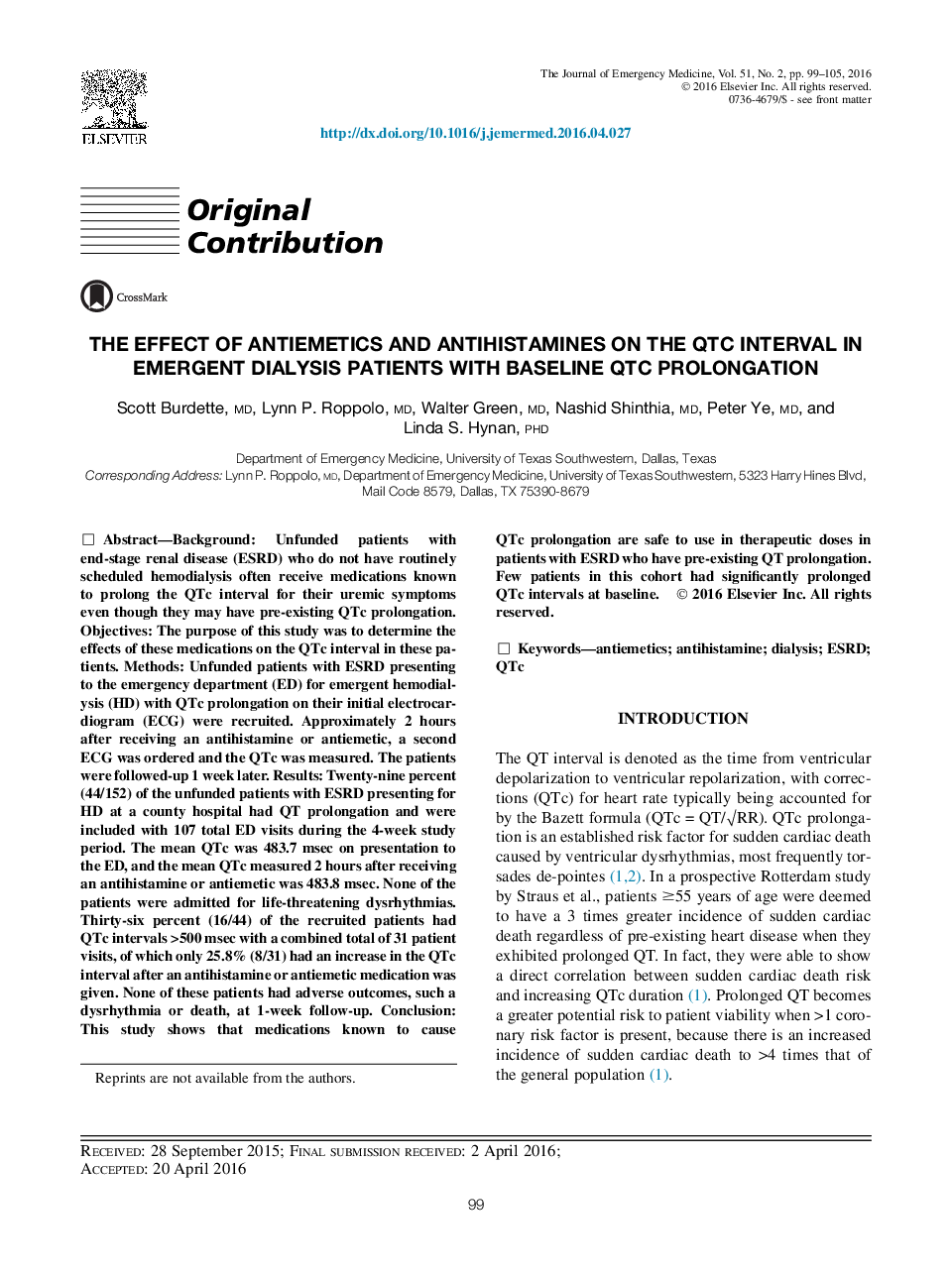| کد مقاله | کد نشریه | سال انتشار | مقاله انگلیسی | نسخه تمام متن |
|---|---|---|---|---|
| 3245660 | 1589110 | 2016 | 7 صفحه PDF | دانلود رایگان |

BackgroundUnfunded patients with end-stage renal disease (ESRD) who do not have routinely scheduled hemodialysis often receive medications known to prolong the QTc interval for their uremic symptoms even though they may have pre-existing QTc prolongation.ObjectivesThe purpose of this study was to determine the effects of these medications on the QTc interval in these patients.MethodsUnfunded patients with ESRD presenting to the emergency department (ED) for emergent hemodialysis (HD) with QTc prolongation on their initial electrocardiogram (ECG) were recruited. Approximately 2 hours after receiving an antihistamine or antiemetic, a second ECG was ordered and the QTc was measured. The patients were followed-up 1 week later.ResultsTwenty-nine percent (44/152) of the unfunded patients with ESRD presenting for HD at a county hospital had QT prolongation and were included with 107 total ED visits during the 4-week study period. The mean QTc was 483.7 msec on presentation to the ED, and the mean QTc measured 2 hours after receiving an antihistamine or antiemetic was 483.8 msec. None of the patients were admitted for life-threatening dysrhythmias. Thirty-six percent (16/44) of the recruited patients had QTc intervals >500 msec with a combined total of 31 patient visits, of which only 25.8% (8/31) had an increase in the QTc interval after an antihistamine or antiemetic medication was given. None of these patients had adverse outcomes, such a dysrhythmia or death, at 1-week follow-up.ConclusionThis study shows that medications known to cause QTc prolongation are safe to use in therapeutic doses in patients with ESRD who have pre-existing QT prolongation. Few patients in this cohort had significantly prolonged QTc intervals at baseline.
Journal: The Journal of Emergency Medicine - Volume 51, Issue 2, August 2016, Pages 99–105